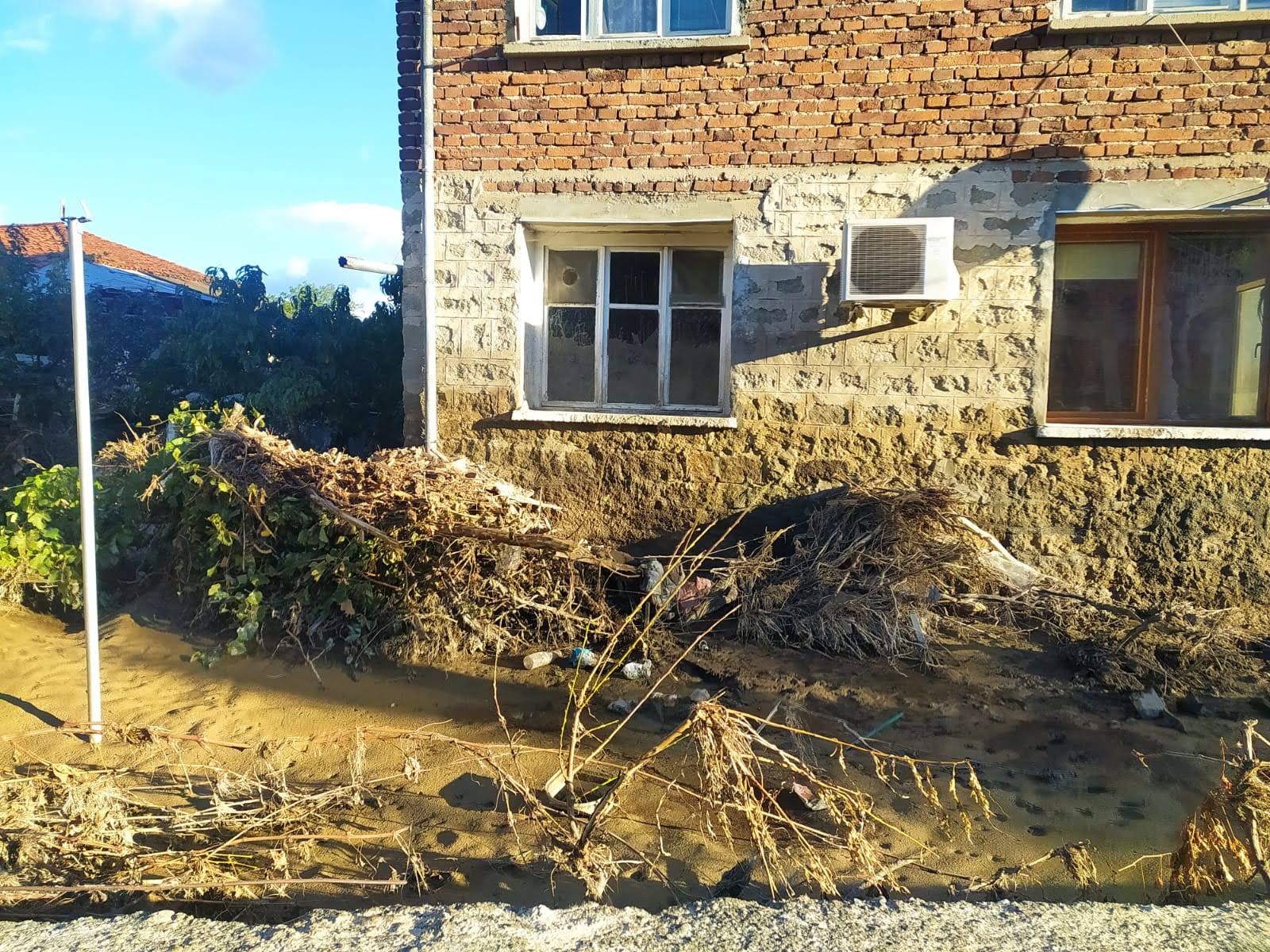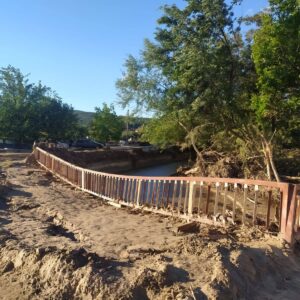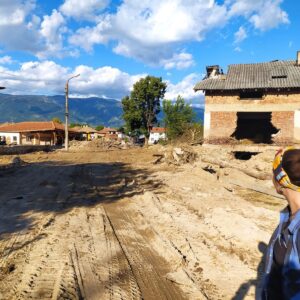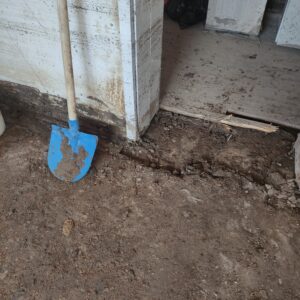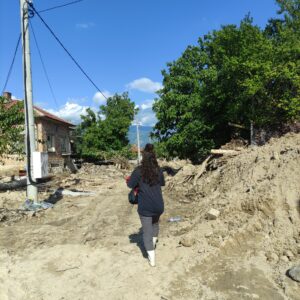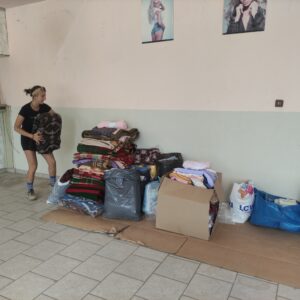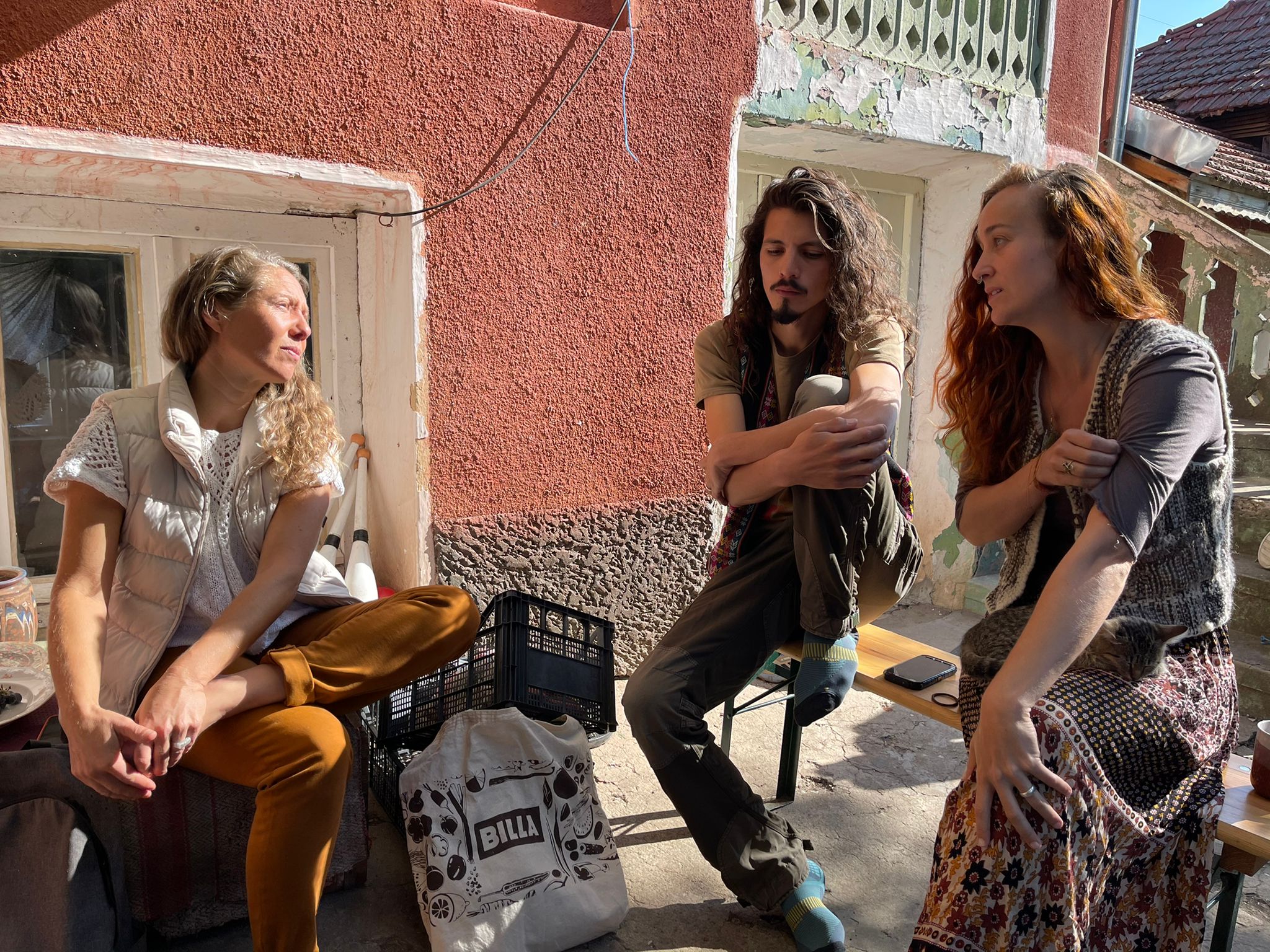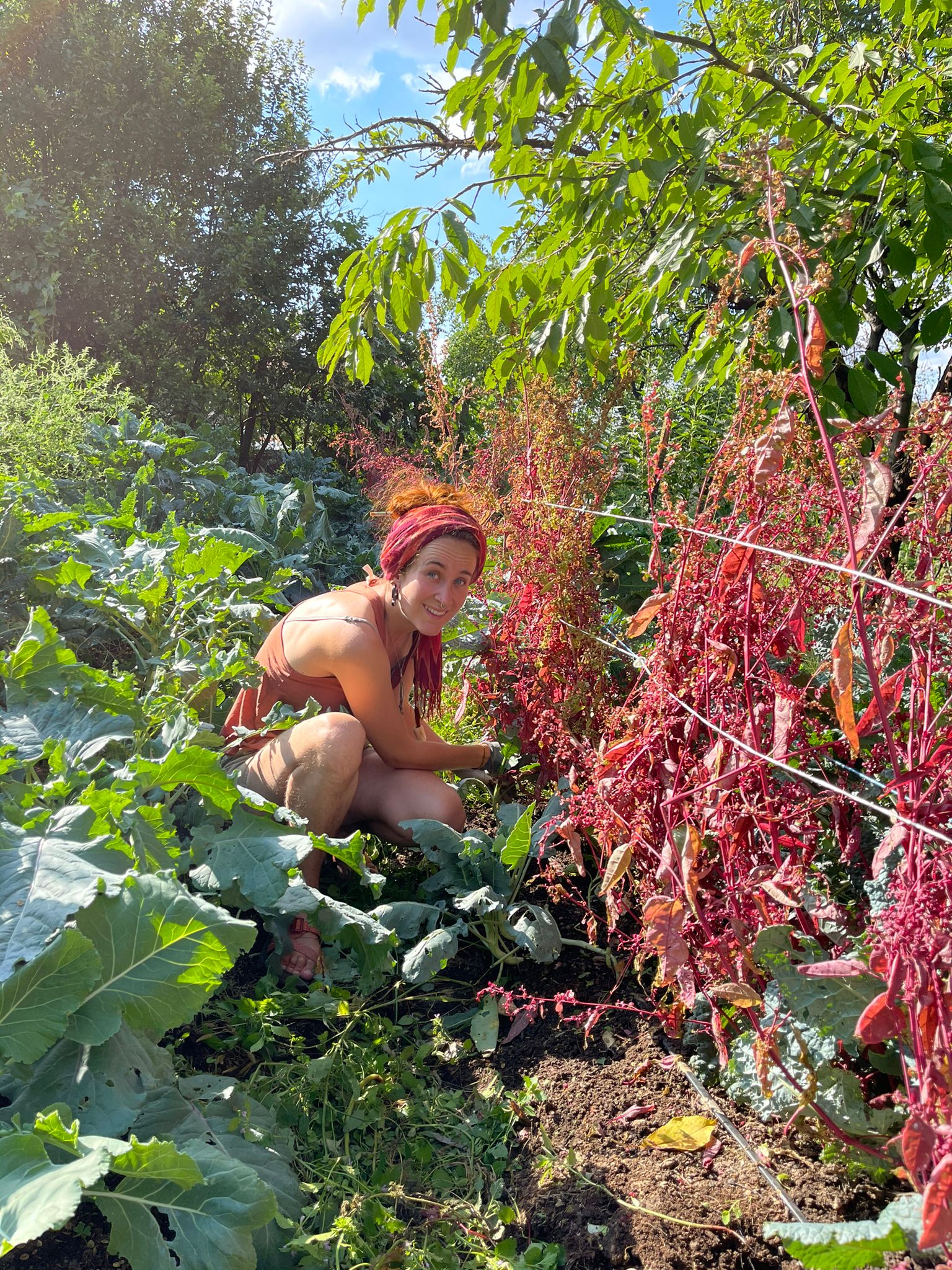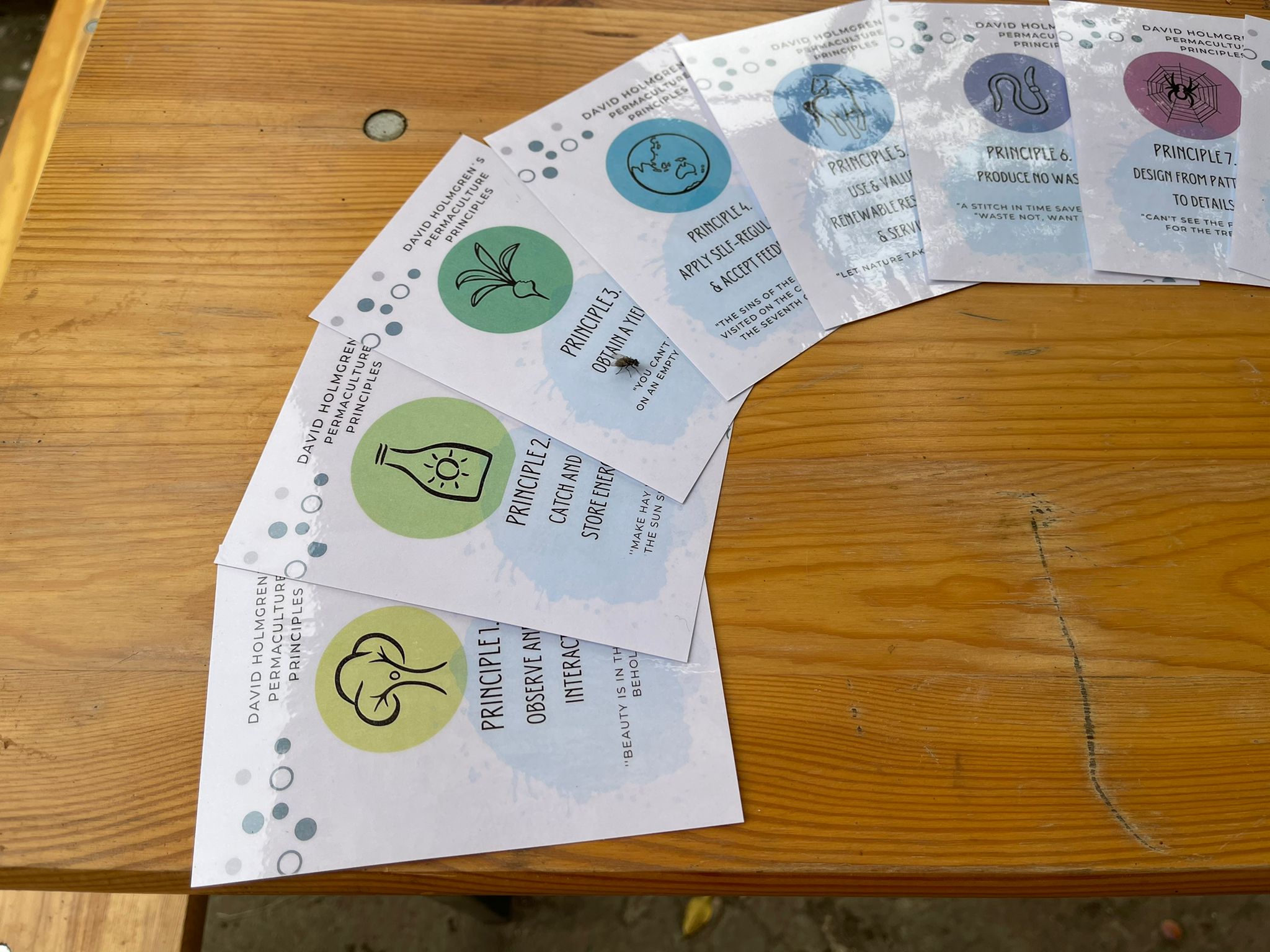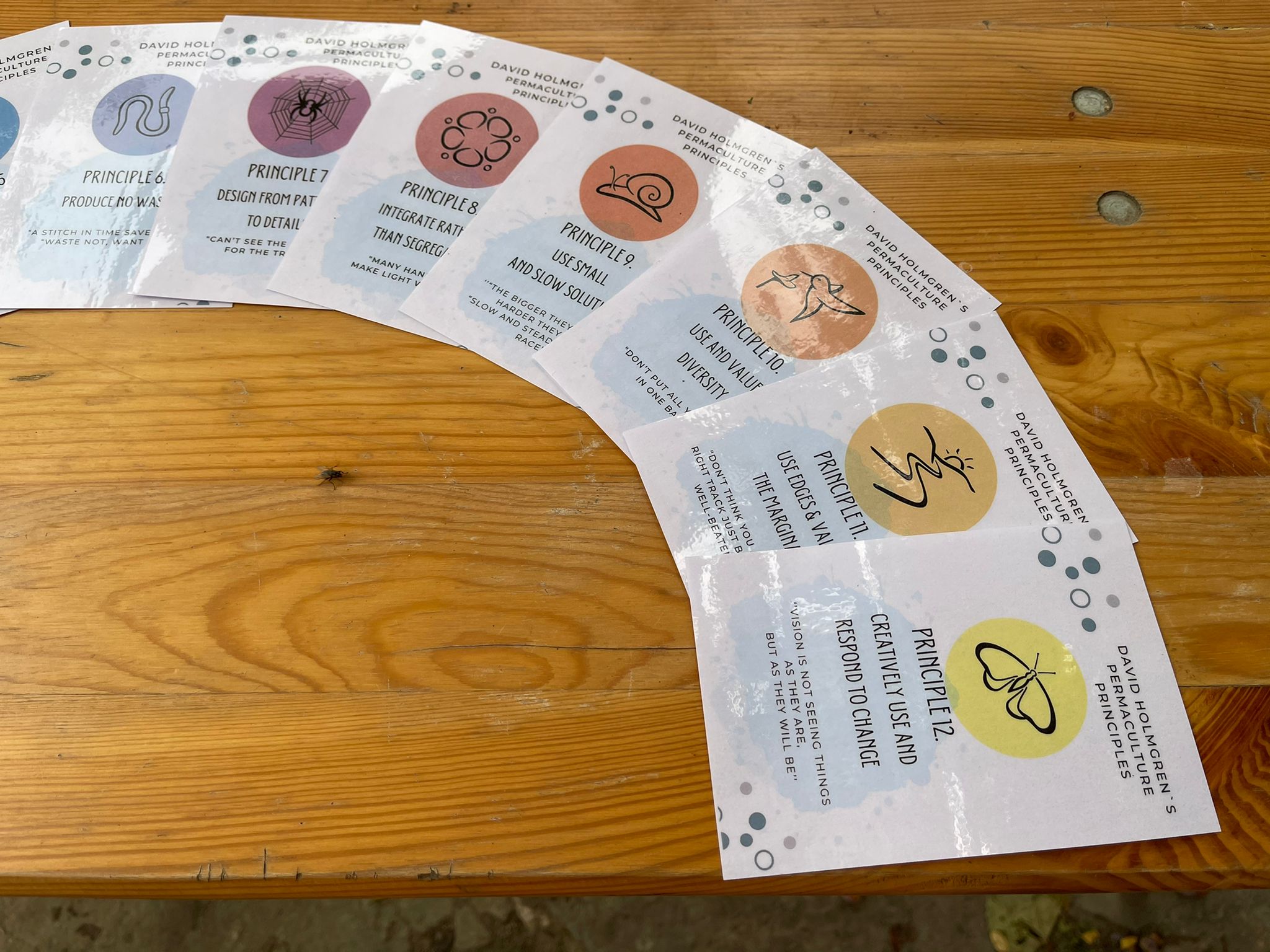Chloé and Paula:
This article is made to raise awareness about the natural disaster that happened in the Karlovo region, on September 3rd. The storm and flooding of the Stryama river left many villages in a dire situation: Bogdan, Trilistnik and Karavelovo where we went . People had to be evacuated and over 100 families were left with nothing in Karavelovo, no house or personal belongings whatsoever. Many other houses and agricultural lands were damaged, bridges collapsed as well as roads. Locals told us that waves as big as three meters could be seen at the moment of the disaster.
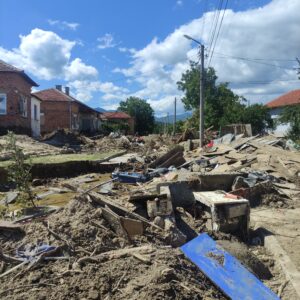
We left Todorovo on Sunday and travelled through the mountains to get there in the afternoon. On arrival, we met with the local organizers of the village who explained us what happened and how they organize daily. Electricity was restored but there is no running water at the moment. We had to take water bottles with us to be able to drink and take a shower. We were then taken to the house that had been prepared for volunteers and we settled down. Every morning we would meet at the city hall and have coffee at the local bar. Then we would take shovels, water, and boots and figured out what was to be done. We also had to be careful and regularly wash and desinfect our hands and wear gloves at all times, because of the health hazards that lay in the waters.
This article will display all the actions we took part in to help the people affected as much as we could. Be aware that some pictures might be difficult to look at, as the floods caused a lot of damage that no one is ever prepared to witness.
> Family houses
The damage caused by the storm could be seen everywhere. Streets had lost their shape, there were no clear paths and houses were full of mud. It was a priority to help the families clearing their houses so they could be ready for the winter. It was heart-breaking how the elderly was doing hard physical work, that’s why shovelling mud and removing ruined furniture were essential tasks for volunteers.
The first person we helped was a grandmother that needed help cleaning her fridges in the room for preserved food. All her house had been infiltrated by the water so they had to empty it entirely and put things that could be saved to dry out in the sun. She brought us many towels and products and we had to scrap the mud out of her fridges. She and her husband were really sweet and even though the language barrier was present we could understand each other.
The second house we helped in had restricted access due to the mud. The mother showed us pictures of how the garden and the house looked before the storm, and it looked nothing like the current state. We spent more than 3 hours working with the family to remove the flood sludge until we uncovered the main entrance stairs.
We also helped a family of two and their grandmother during our entire stay. We met them as they are the neighbours of another family we helped earlier on. The ground floor of their house got totally destroyed by the flood, meaning that we had to take off the wooden floor entirely and the mud as well that had gotten under it. Concrete would also come out, as the water broke the floor. We had to empty what was left, like the heater, broken windows, broken items… We also cleared the area around the house, as a height of one meter of mud was surrounding it and also the stone fence had collapsed so it had to be cleared.
It was really hard to be inside the house, because you could clearly see the water lines and how high it went, taking everything on its way. Seeing the locals emptying what was left of their belongings, totally unusable and broken, was heart-breaking. But they kept going, they are very brave people.
The first day we were alone with them, but the two other days volunteers from Sofia arrived and allowed us to work more efficiently. We used mattocks to break big mud parts and then shoveled to collect it and dump it.
Another house down the road got a lot of water infiltrated in their cellar, which left a huge quantity of wet mud. We helped the family, with two Bulgarian volunteers from Plovdiv. They would shovel the mud out through the window and with Paula we would shovel it back into the road for the truck to pick it up and evacuate it. It was hard to see all the belonging coming out of the mud, totally out of use (broken preserved food and CDs, wet books, bikes…).
> Sorting out donations
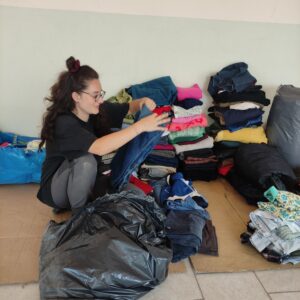
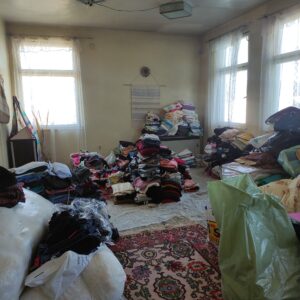
Even though we could not understand the language, we got a very warm welcome in the village. Together with two local women, we sorted out the donations made by particular people from around the country. It made us happy to see how Bulgarian people were aware of the situation in Karavelovo and how they wanted to make a positive impact.
Donations included mostly clothes and bedding, but there were also shoes, towels, and bags. Clothes were divided into Men, Women and Children, and organized depending on the garment type (trousers, shirts, T-shirts, pullovers, coats …). It was also a nice opportunitty for us to find beautiful and homemade socks typically made by Bulgarian grandmothers as we discovered later on. Making it easier for the families who have lost everything was a heartening and comforting experience.
In the end, we hope that this raises awareness about the dire situation those villages are going through, and that the help they need will be provided. We wanted to really thank the locals for their very warm welcoming, even though they are going through a very difficult situation. We are very grateful to have been able to help and meet with those wonderful people, and we are thinking of going back in October when we go back from our PDC course.
Mali:
With Misha and Philip bringing Paula to Venets, our volunteer team had grown into a group of five, a full house! At the start of the week, for our Monday morning meeting, we gathered with Catherine to talk about the project, and how the rest of the week could look like more or less.
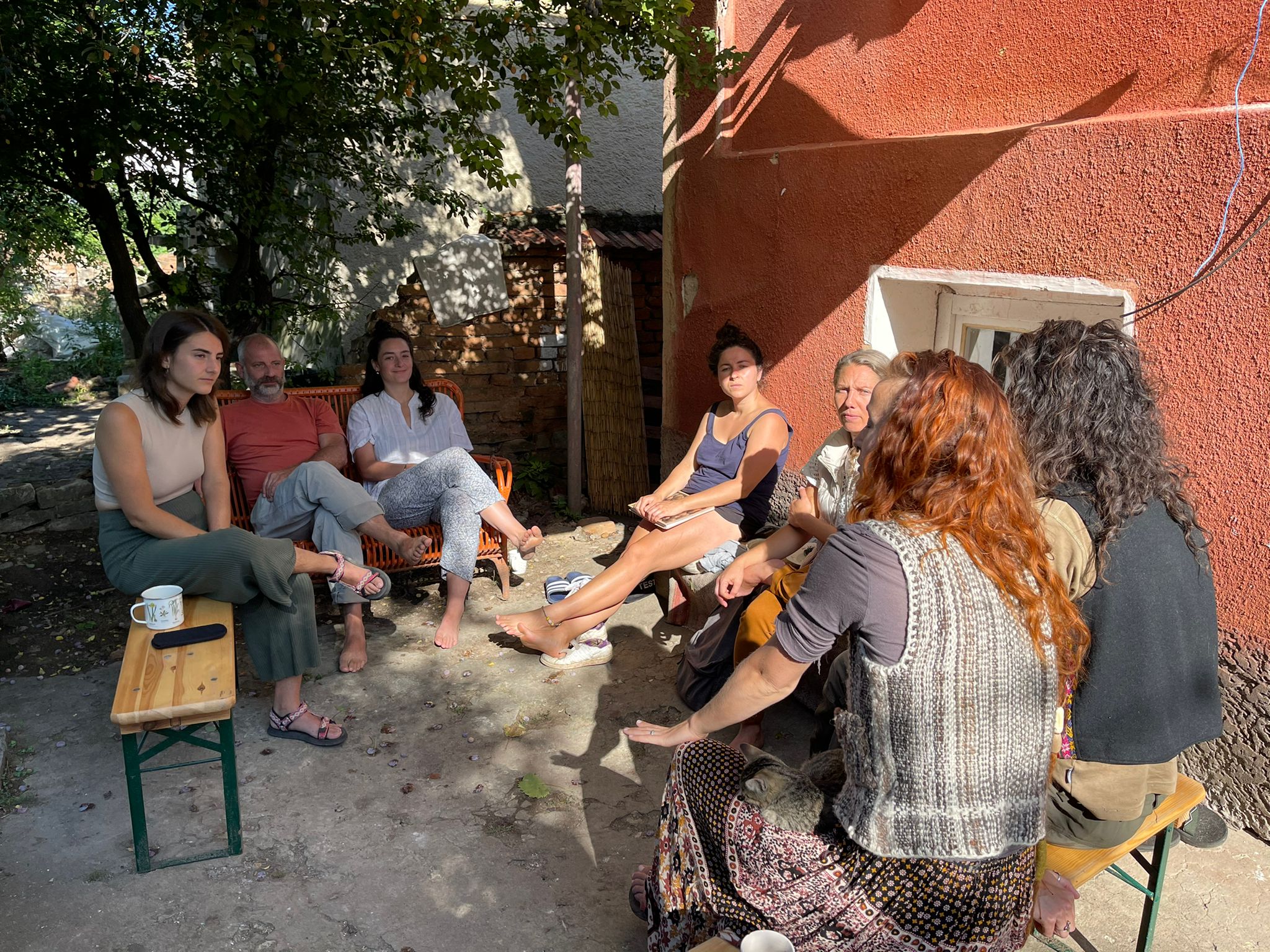
As Renzo became quite sick, my attention was spread out between garden activities (like lifting up fallen down plants that were left for seed saving) to taking care of him and bringing him to the hospital for a check to see what was going on, as well as starting to prepare for our upcoming Permaculture Design Course on Sicily.
Lifting up Atriplex hortensis (common name: red orache) for the seeds to dry better and to harvest later on
As the group leader of the Bulgarian team that would join, I had some logistical responsibilities so was on various online calls that week. Besides that, I was asked to teach a session on the first day of the course, on the permaculture ethics and principles. Vyara designed some beautiful principle cards for that, and the practice I had in Beglika festival with the two intro to PC sessions, helped me to design a nice and fitting workshop for this course with 25 young people from all over Europe. More about these upcoming experiences in the blog post of week 26 when we have returned again from Italy!
The wonderful set of principle cards designed by Vyara for the PDC course in Italy (photo: Mihaela)

